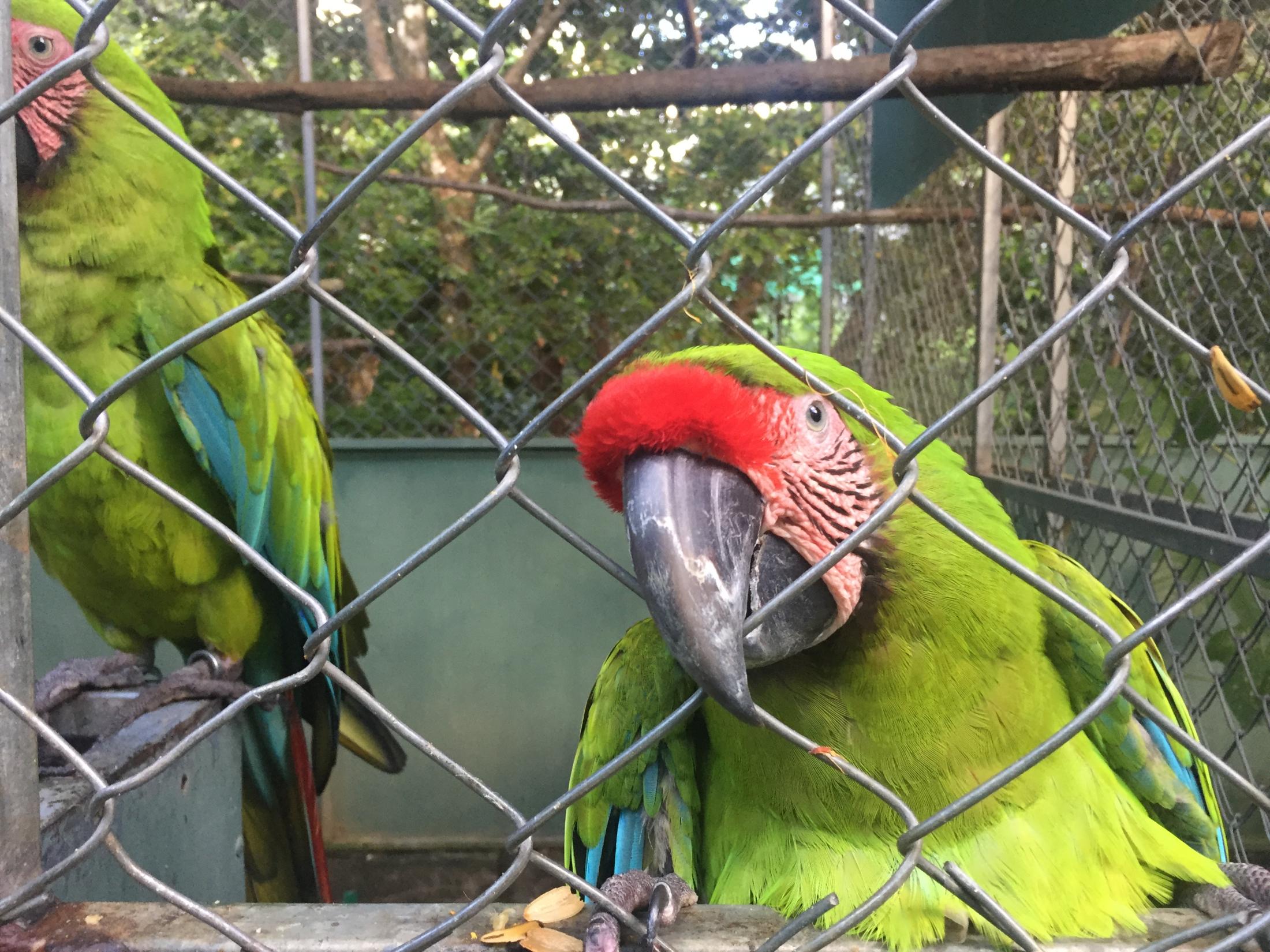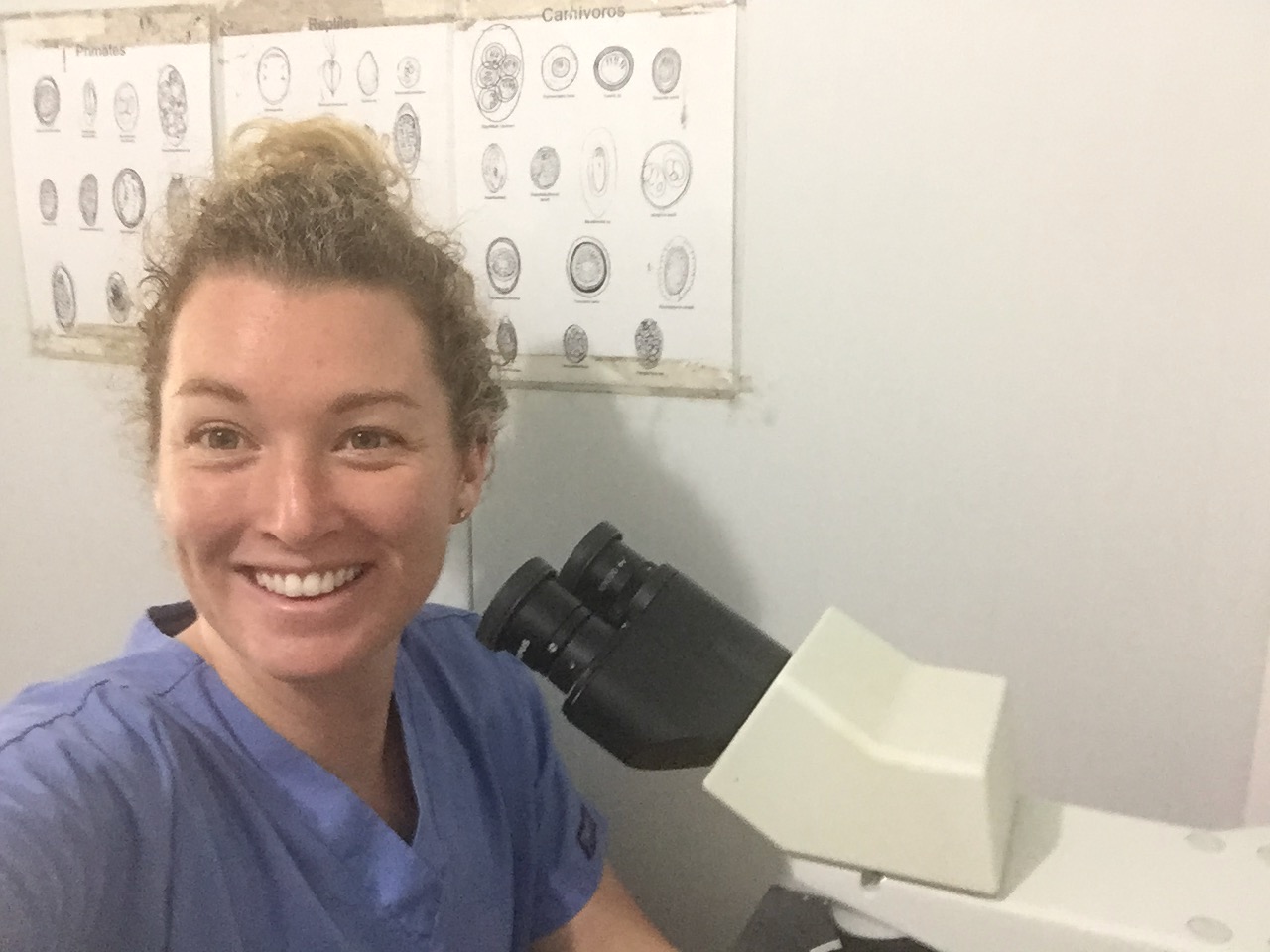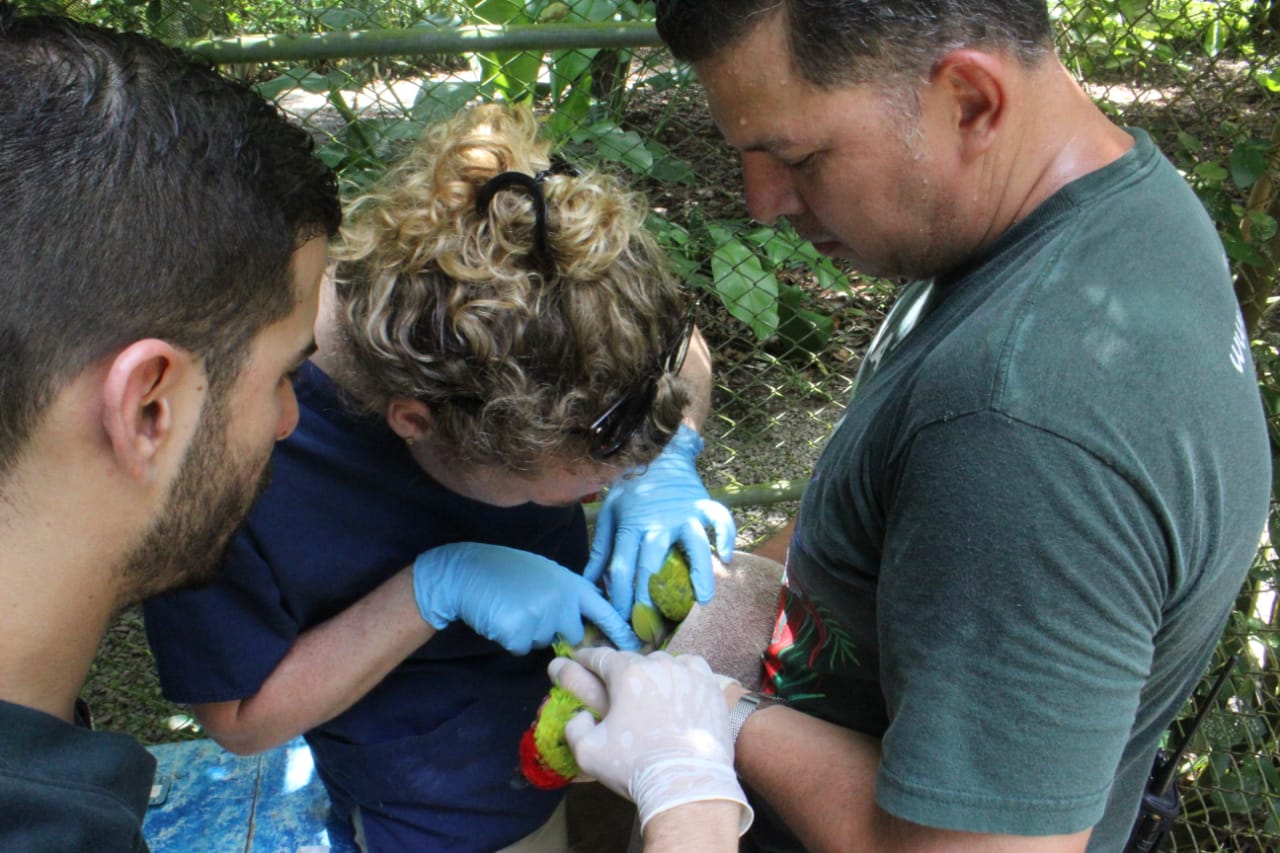Hayley Dieckmann
Hayley Dieckmann – Costa Rica 2018 Summary
This summer I traveled to Costa Rica to work with great green and scarlet macaws and the amazing faculty and students at the National University of Costa Rica Veterinary School. I chose to go to Costa Rica because of its reputation for prioritizing wildlife conservation and ecotourism. I was also eager to see the fascinating native animals of Costa Rica. In my species of interest, macaws, the government was heavily involved in efforts to repopulate wild areas with this native bird. I was very lucky to have been able to work with and see some of the macaw rehabilitation projects in person.
While in the country I traveled to four wildlife rehabilitation centers. My project focused on determining prevalence of blood and intestinal parasites in green and scarlet macaws in these rehabilitation centers, prior to release into the wild. I spent multiple days collecting fecal and blood samples from the birds and analyzing them in the lab. I was able to interact with staff and biologists at the wildlife centers and learned an incredible amount about their conservation work, as well as life in Costa Rica. Wildlife centers serve to care for and breed macaws in order to release them back into wild areas and everyone I met was engaged and dedicated to these reintroduction efforts. I was truly inspired by their commitment and the success that they’ve had in the reintroduction of macaws to Costa Rica.
The results of my study showed that the macaws in Costa Rica were overall healthy. There was no evidence of hemoparasites in the birds I sampled. I did detect varying levels of intestinal parasites including Ascardia and Capillaria. It was very rewarding to work with the samples from collection to analysis and I feel that I practiced valuable skills of fecal and blood parasite analysis during my study. Additionally, I assisted the wildlife centers in collecting measurements of the birds as part of routine surveillance. I also had the opportunity to see the daily care of the birds and hear about their past medical history in hopes of understanding any health concerns facing these animals.
Outside of my research project, I spent time with the faculty and students at the National Veterinary School. I worked alongside fourth year veterinary students in the small animal hospital and assisted in the treatment of wildlife and exotic animals that were brought to the hospital. It was exhilarating to work in this environment where I was responsible for diagnostic work ups on owls, monkeys, parakeets, porcupines and other wild animals. The vet students were welcoming, kind and incredibly hard working. It was wonderful to meet my future colleagues and be able to communicate our shared love of veterinary medicine. Overall, I think this experience emphasized to me the importance of international partnerships in my future career and reinvigorated my goal of working in wildlife and conservation medicine.
My project was supported by Dr. Mauricio Jimenez, Director of the small animal teaching hospital at the Costa Rican National Veterinary School, Dr. Ana Jimenez, parasitologist at the Costa Rican Veterinary School, and Dr. Patricia Conrad, UC Davis faculty parasitologist and associate Dean of Global Programs. This fantastic group of veterinarians enabled me to have the experience of a lifetime.



